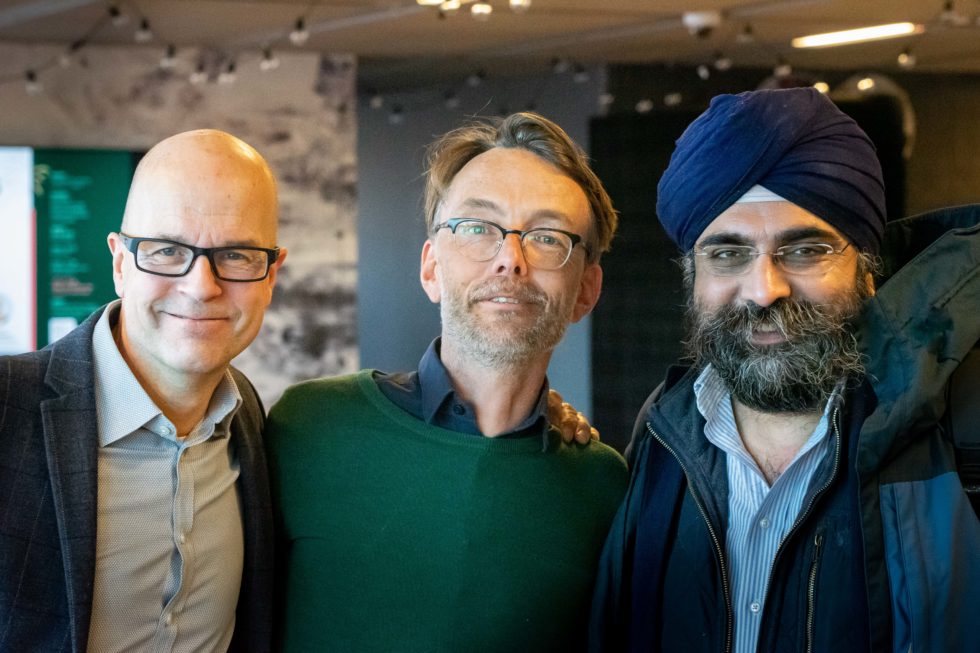Change cannot – and will not – be delivered by activism alone. It must, and usually is if successful, get accompanied by a transformation of our institutional economy – our means of administration, governance, organisation and allocation.
The Boring Revolution is not a theoretical concept, nor is it a ready-made solution; it is a shift in mindset and outlook that structurally and systemically is changing our means and models.
We would like to invite you to help us co-design and explore how the Boring Revolution could transform how we address three of the most urgent challenges faced by our cities.
THREE CHALLENGES FOR A BORING REVOLUTION
Smart infrastructure
One of the immediate impacts of climate change is the growing risk of flooding; a reality currently manifesting itself worldwide, whether the slow disaster of Jakarta or flooding being named the third-highest financial exposure after Medicare and Social Security in the U.S.
Most of humanity lives next to the water and as climate change accelerates the cost of coastal protection will be one of the most significant liabilities cities face, perhaps the greatest for a century.
This future necessitates a rethink of how we invest in infrastructure. Substantial values will be created and lost in the near future and the Boring Revolution is, therefore, a necessary development to ensure an inclusive transition. We welcome you to design the future of infrastructure with us.
Pollution
Our school children have fresh minds, but not access to fresh air. 90 percent of all classrooms have CO2 levels beyond the threshold – not occasionally, but most of the time. It has been assessed that a ninth-grade student would have gained one whole year of added learning if the quality of the indoor environment at schools, in general, was at the level now required for new construction.
Environmental impact – whether light pollution, air pollution or sound pollution – and associated challenges are well documented and regulated, so are the technical solutions.
The Boring Revolution presents an opportunity to fundamentally transform the real-estate model, refocusing on human wellbeing and other human-centred outcomes as opposed to simply harvesting the profit of market value increase. We welcome you to design the future of real-estate with us.
Circular construction & the post-ownership society
Our construction industry today offers a one-way ticket to the waste heap. We are consuming invaluable resources for singular use only at an unprecedented rate globally. As a major consumer of materials and energy, the construction industry will have to lead the way in transitioning towards a circular economy if we are all to have a viable future.
Innovation in the circular economy has until now mainly been driven by exceptional pioneers rather than by a fundamental transition. Construction needs a fundamental revolution to reduce the demand for materials and reimagine the future of smart maintenance. This will require an economy where materials are re-understood as resources that don’t belong to buildings but which we borrow for a defined period of time.
The Boring Revolution holds the key to a systemic circular economy where materials are tracked and where we benefit from new developments in property management and proptech. Such a future may open up very radically different models of ownership – from the tokenization of the value of the materials deposited in buildings to a model of ownership where buildings themselves are sovereign and cannot be claimed or owned by individuals or corporations. We welcome you to design the future of the circular construction economy and real estate ownership with us.
Context
This gathering marks the beginning of a process of establishing a new lab located at BloxHub, launching in late 2020/21 and cofounded by BloxHub, Dark Matter Labs, Smith Innovations. The lab will identify and research world-class pioneers – forward-thinking first-movers – and focus on subjects such as reverse engineering and viable next-generation institutional economies from smart contracting to real-time regulation and compliance to help these beautiful exceptions become the new normal.



